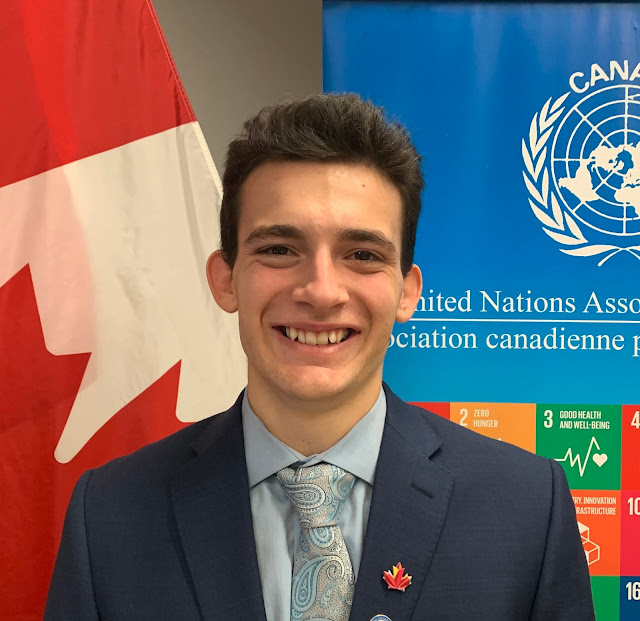Lavan Kandiah's Journey at IOM Ghana
Lavan Kandiah's Journey at IOM Ghana

My name is Lavan and I’m working with the UN International Organisation for Migration (IOM) in Accra, Ghana, as part of the Counter-Trafficking (CT) Unit. I worked in migrant-related research and refugee advocacy projects in the past, therefore the CT team has been a good fit for my interests.
IOM’s work in Ghana is
project-based. The two active projects are respectively focused on child labour
trafficking, and adult sex trafficking; both projects are scheduled for
completion in 2020, after which future projects will depend on funding.
It has been very exciting to take
part in IOM’s efforts to help victims of trafficking and work with government ministries
to build state capacity. My role mostly involves editing documents and reports
used in IOM training and knowledge-sharing campaigns, and assisting in
drafting concept notes for potential projects. Attending high-level
meetings with various government ministries has been one of the highlights of
my time in Ghana. Witnessing policy and decision making at
the national level has been an eye-opening experience because it showed me the extent of
the challenges that often stand in the way of policy implementation, such as funding, coordination and bureaucracy.
Also, I had the opportunity to interact directly with the victims of trafficking, which were mostly impromptu and unplanned, but also very fulfilling. Attending interviews, escorting victims from the airport, and assisting with operations have been occasional tasks that have provided the front-line exposure that I was looking for in this position. Hearing victims’ stories of exploitation and perseverance has helped me realize the importance of the work the UN does in CT.
In speaking with IOM staff in Accra,
something I have consistently heard is that it is impossible to understand
humanitarian and development work without front-line exposure, which is invaluable experience that it is becoming the most valuable contributor to my
career goals. Observing and assisting in project development, knowledge
sharing, coordination, budgeting and victim interviews has provided a lot of
knowledge of the many aspects of humanitarian project management. With my own
interests in project management, my time with the IOM in Ghana has been
incredibly rewarding. Among the most valuable lessons I have learned so far are
that the majority of efforts taken to address development issues take place
“behind the scenes”, and that meaningful and measurable progress is gradual. Finding fulfillment in this industry takes a lot of patience, but is very rewarding once
you see the impact that the work you do has on individual communities and victims of trafficking. Not to mention, since I have seen the extent of the hurdles that often stand
in the way of helping vulnerable communities, it is now easier to understand why
humanitarian organisations are not always able to act as decisively as would be
expected. Another important lesson has been recognizing that every industry,
including development, has an unpleasant side. Politics, competition and
self-interest play just as much of a part in this line of work as it does in any other. Recognizing the unpleasant side is an important part of finding fulfillment in development. All of these experiences have been very helpful in determining if this industry is
where I want to be, and I can confidently say that it is.



Comments
Post a Comment